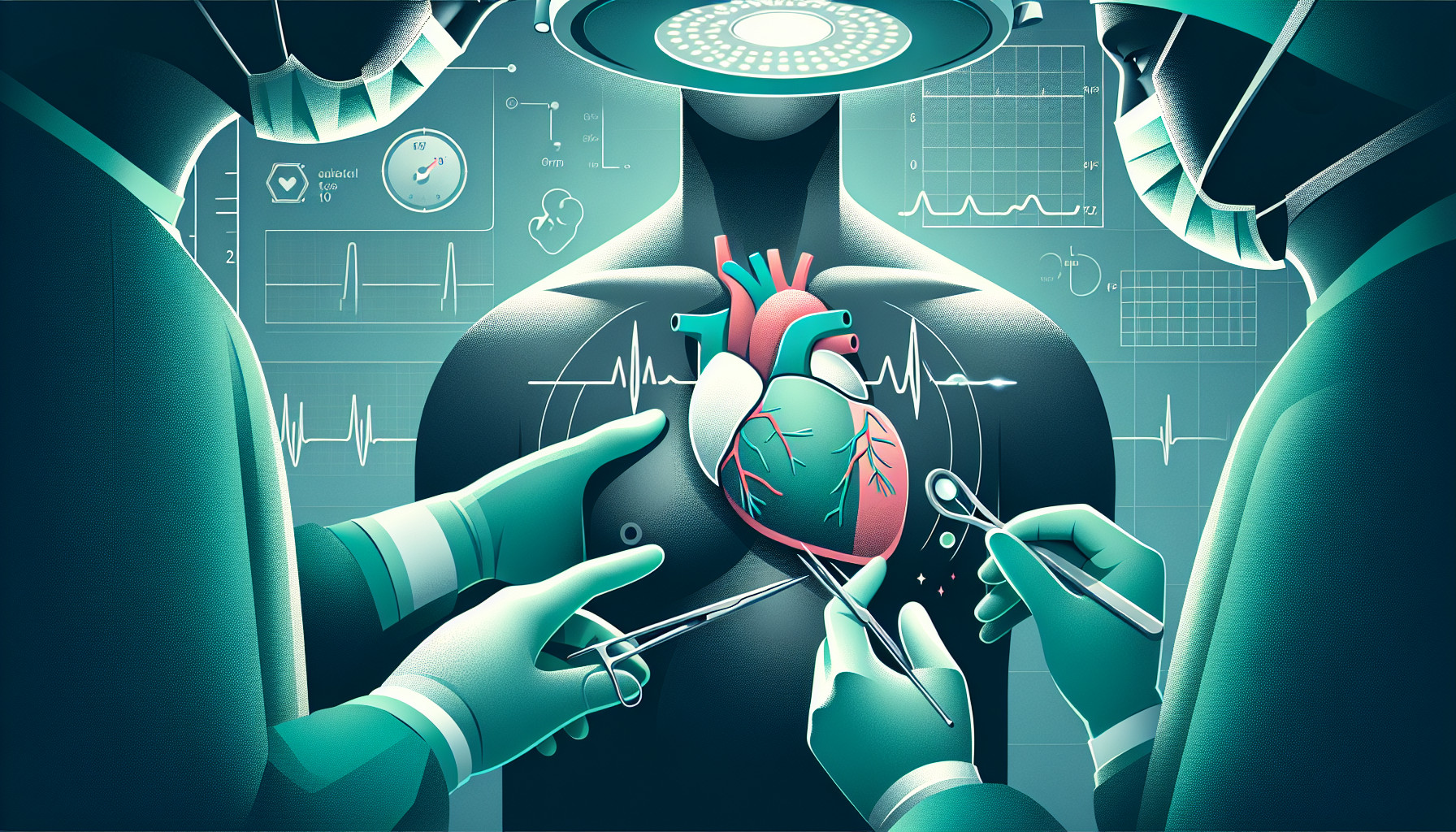Our Summary
As there’s no abstract provided, I’ll give a general summary based on the keywords. This research paper is a scientific investigation into the connection between aortic aneurysms, arrhythmias, and mitral valve insufficiency.
An aortic aneurysm involves a bulge or swelling in the aorta, which is the main blood vessel that supplies oxygenated blood to the body. If this bulge ruptures, it can cause serious bleeding that can quickly become life-threatening.
Arrhythmias refer to heart rhythm problems - when the heart beats too fast, too slow, or irregularly. This can affect the efficiency of the heart in pumping blood around the body.
Mitral valve insufficiency, also known as mitral valve regurgitation, is a condition where the heart’s mitral valve doesn’t close tightly, allowing blood to flow backward into the heart.
The research paper likely discusses the relationships among these heart conditions, their causes, symptoms, the potential risks they pose to human health, and possible treatments or prevention methods.
FAQs
- What is a mitral valve replacement?
- How does mitral valve insufficiency relate to arrhythmias and aortic aneurysm?
- What are the risks or potential complications of mitral valve replacement?
Doctor’s Tip
One helpful tip a doctor might tell a patient about mitral valve replacement is to follow a healthy lifestyle, including maintaining a balanced diet, regular exercise, and avoiding smoking and excessive alcohol consumption. This can help improve the overall health of the heart and reduce the risk of complications after the surgery. Additionally, it is important to attend all follow-up appointments and adhere to any medication or therapy recommendations provided by the healthcare team.
Suitable For
Patients who are typically recommended for mitral valve replacement are those with severe mitral valve disease, such as severe mitral valve regurgitation or stenosis. This may be due to conditions such as mitral valve prolapse, mitral valve annular calcification, rheumatic heart disease, or infective endocarditis. Patients who have symptoms such as shortness of breath, chest pain, fatigue, or palpitations despite optimal medical therapy may also be candidates for mitral valve replacement. Additionally, patients with severe left ventricular dysfunction or pulmonary hypertension may benefit from mitral valve replacement to improve their overall heart function.
Timeline
Before Mitral Valve Replacement:
- Patient may experience symptoms such as shortness of breath, fatigue, chest pain, and palpitations due to mitral valve insufficiency.
- Patient undergoes diagnostic tests such as echocardiogram, cardiac catheterization, and electrocardiogram to evaluate the severity of the condition.
- Once it is determined that mitral valve replacement is necessary, the patient is scheduled for surgery.
After Mitral Valve Replacement:
- Patient undergoes open-heart surgery to replace the damaged mitral valve with a prosthetic valve.
- Patient is monitored closely in the intensive care unit immediately after surgery for any complications.
- Patient undergoes cardiac rehabilitation to help regain strength and endurance post-surgery.
- Patient may need to take medications to prevent blood clots and manage symptoms.
- Patient is advised to make lifestyle changes such as eating a heart-healthy diet, exercising regularly, and quitting smoking to improve long-term outcomes.
- Patient undergoes regular follow-up appointments with their healthcare provider to monitor the function of the new valve and overall heart health.
What to Ask Your Doctor
- What is the reason for needing a mitral valve replacement?
- What are the different treatment options available for mitral valve replacement?
- What are the potential risks and complications associated with mitral valve replacement surgery?
- How long is the recovery period after mitral valve replacement surgery?
- Will I need to take medication after the surgery? If so, what are the potential side effects?
- What lifestyle changes will I need to make after the surgery?
- How often will I need follow-up appointments after the surgery?
- Are there any restrictions on physical activity or diet after mitral valve replacement?
- What is the long-term prognosis for someone who has undergone a mitral valve replacement?
- Are there any support groups or resources available for patients who have undergone mitral valve replacement surgery?
Reference
Authors: Afoke J, Camacho E, Bagameri G. Journal: Heart. 2023 Jul 12;109(15):1145-1192. doi: 10.1136/heartjnl-2023-322553. PMID: 37438056
